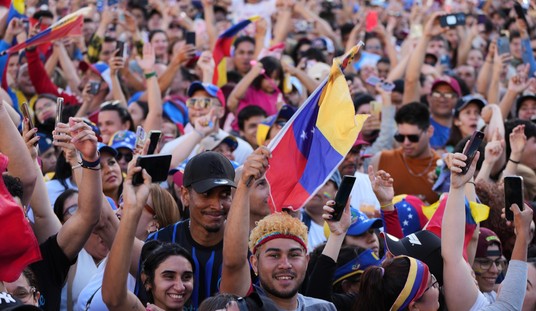The Daily Mail reports that Saudi Arabia warned the US in writing about Tamerlan Tsarnaev in 2012. The Saudi official cited by the Mail said the warning “was separate from the multiple red flags raised by Russian intelligence in 2011, and was based on human intelligence developed independently in Yemen.”
Citing security concerns, the Saudi government also denied an entry visa to the elder Tsarnaev brother in December 2011, when he hoped to make a pilgrimage to Mecca. Tsarnaev’s plans to visit Saudi Arabia have not been previously disclosed.
The article says the warning letter was given to the DHS. But while one DHS official confirmed knowledge of it to the Mail, the agency itself denied ever having heard of the Saudi warning.
‘DHS has no knowledge of any communication from the Saudi government regarding information on the suspects in the Boston Marathon Bombing prior to the attack,’ MailOnline learned from one Homeland Security official who declined to be named in this report. The White House took a similar view. ‘We and other relevant U.S. government agencies have no record of such a letter being received,’ said Caitlin Hayden, a spokesperson for the president’s National Security Council. …
The high-ranking Saudi official whom MailOnlne interviewed provided a wealth of detail about the warning he says his government sent to the United States. He spoke on condition of anonymity because he is not authorized to talk publicly about foreign intelligence, or about Saudi Arabia’s diplomatic relationship with the United States.
He suggested that the Saudi Ministry of Interior sent the letter out of an abundance of caution in order to be helpful to the United States, even if its intelligence on Tsarnaev wasn’t yet fully developed.
‘With Saudi Arabia it’s always code red,’ he said. ‘There’s no code orange, or code yellow. Always red.’ The Saudi government, he added, alerted the U.S. in part because it believed American authorities should be inspecting packages that came to Tsarnaev in the mail, in order to search for bomb-making components.
Whether or not they finally get their story straight, as the postmortems into the Boston Marathon bombing continue it is likely that many more such tantalizing warnings will come to light. One of the characteristics of retrospective awareness is that events that were dismissed as paranoid or occasioned by mere suspicion at the time acquire a new significance in hindsight. Why? Because the data becomes information under the organizing effect of the right query.
Once the investigators know how to construct a query — know what to look for — it will pick up the pattern of events with remarkable ease. A plethora of evidence suddenly presents itself in place of the previous blank. The problem is not always the lack of data. The problem is often the lack of the query. The difficulty facing those who want to anticipate an attack is how to construct a query before an obvious trigger event gives the head’s up.
When the FBI interviewed Tsarnaev two years ago they concluded there was nothing “derogatory”. Even assuming that political correctness had nothing to do with their passage through the screen, we can imagine that even after the Russians and other sources added more pieces of the puzzle it was hard to fit them together until the investigators knew what picture to look for.
If anything can be laid at the doorstep of the administration it is why the query took so long to construct once the bombing had happened. Doubtless they will cite the requirements of the law.
But the problem with judicializing the war on terror is that the trigger events — the incident that incites the query — are by definition legal events. Until you break some law the system doesn’t crank after you. That’s as it should be in a judicial system. But that’s not how it should be with intelligence. The essential difference between intelligence gathering and police work is that intelligence often concerns itself with the future while the cops work largely after the fact — after the trigger event has taken place.
By contrast, for the Saudis everything was “always code red”. You were presumed guilty until they figured you were innocent. This difference in approach underscores why it is difficult to interchange warfare with judicial processes. Warfare is all about pre-emption and doing unto others before they do unto you — at least until the point of victory is achieved. On the other hand judicial processes are a completely different beast. They are all about protecting rights and thus ensure the terrorist is essentially treated in the same way as a civilian.
Any police procedure that didn’t give the Boston suspects the full protection of the law wouldn’t be a police procedure. It’s a wonderful way to enforce the law, but it’s a heck of a way to run a military operation. Imagine if Patton had to Mirandize each and every member of the SS his armies came across. We’d still be fighting World War 2.
Thus, a police approach will be too slow to prevent enemy attacks while on the other hand any sufficiently militarized police operation will dilute or diminish the rights of the general population. That is why war and police work are normally conducted as separate activities. You shouldn’t treat enemy combatants like suspects and you shouldn’t treat Watertown like a combat zone.
But some people think it’s a bright idea to cross the wires. That you improve the flavor by mixing the two distinct approaches up. Then one often gets the worst of both worlds: enemy combatants living a legal limbo in Guantanamo and small army of Boston cops clanking through the suburbs in armored vehicles. The complementary dangers to the Obama administration’s judicial approach to counterterrorism is that you get both lousy counterterrorism and a gradual erosion of the Bill of Rights. It’s heads you lose, tails the terrorst wins. It is the equivalent of a spork or a foon — a kind of hybrid not particularly good at any one thing.
Only a really smart guy could have thought the spork up. But it has it’s disadvantages. When you make political promises to everyone everyone gets something. Just not the something they counted on.
The Three Conjectures at Amazon Kindle for $1.99
Storming the Castle at Amazon Kindle for $3.99











Join the conversation as a VIP Member